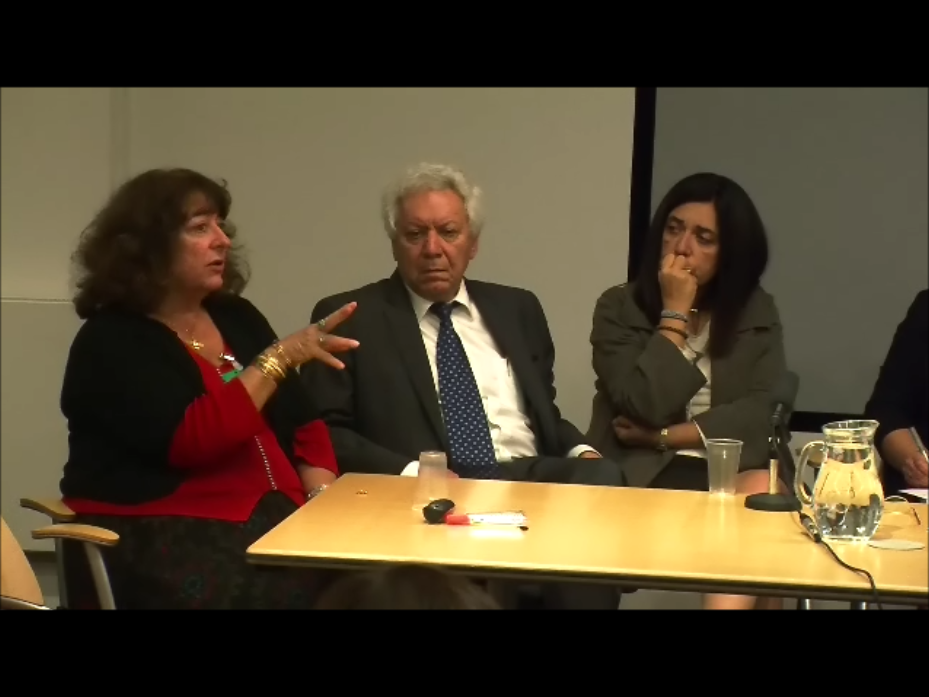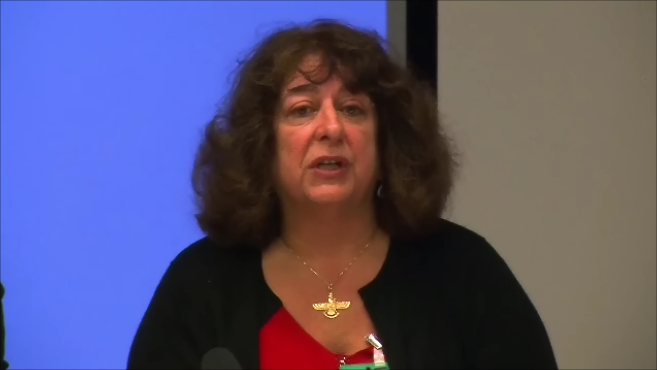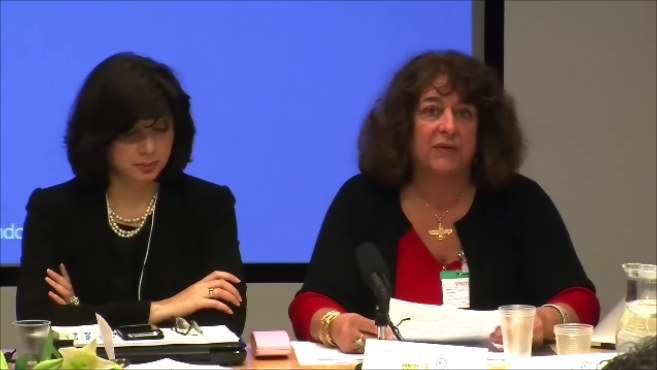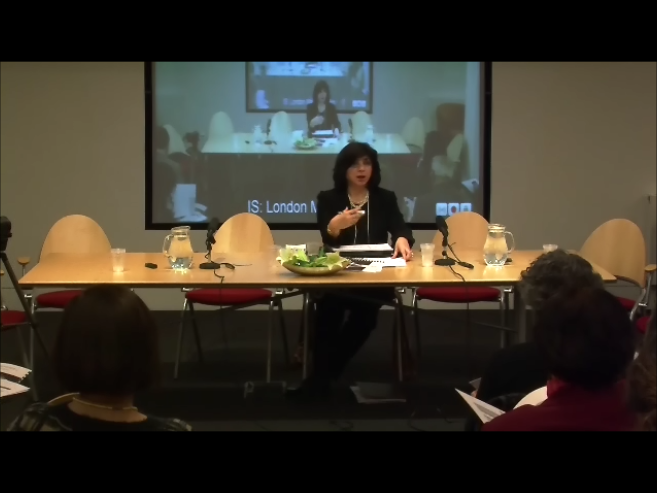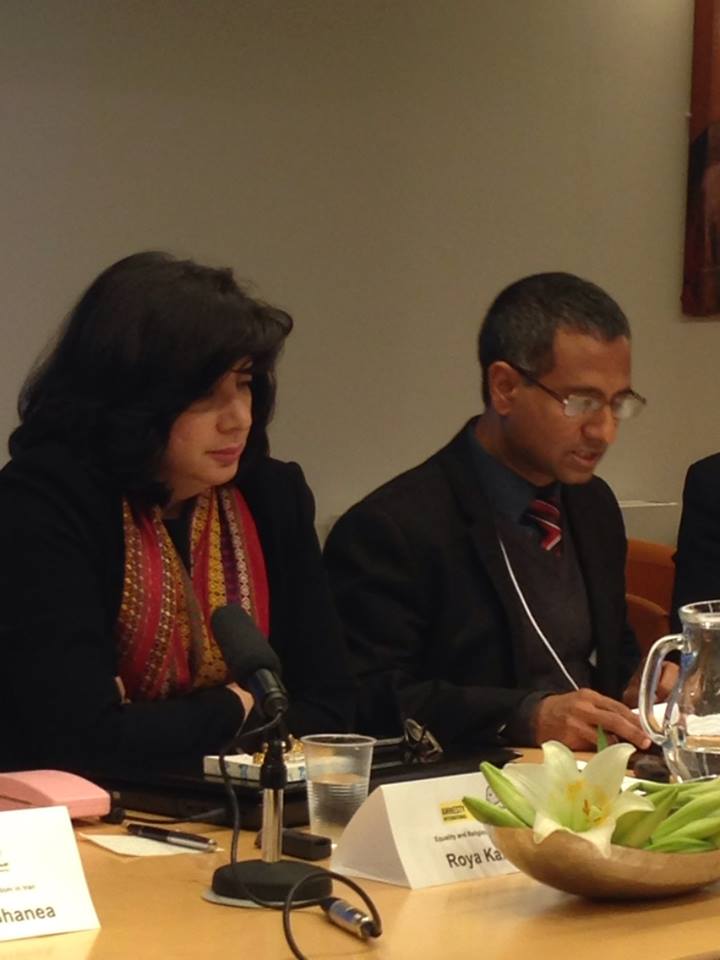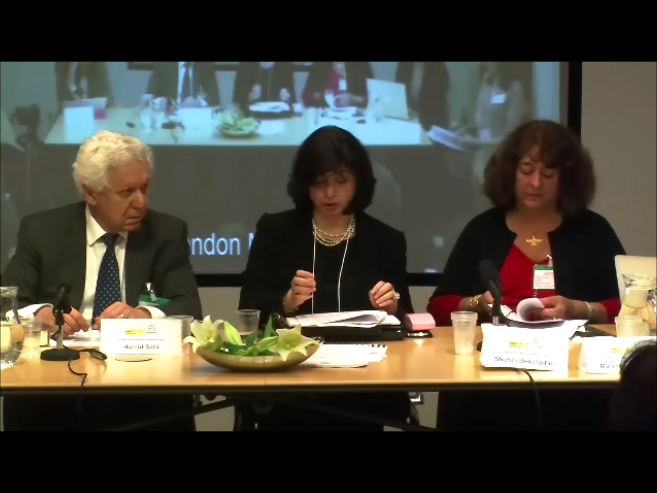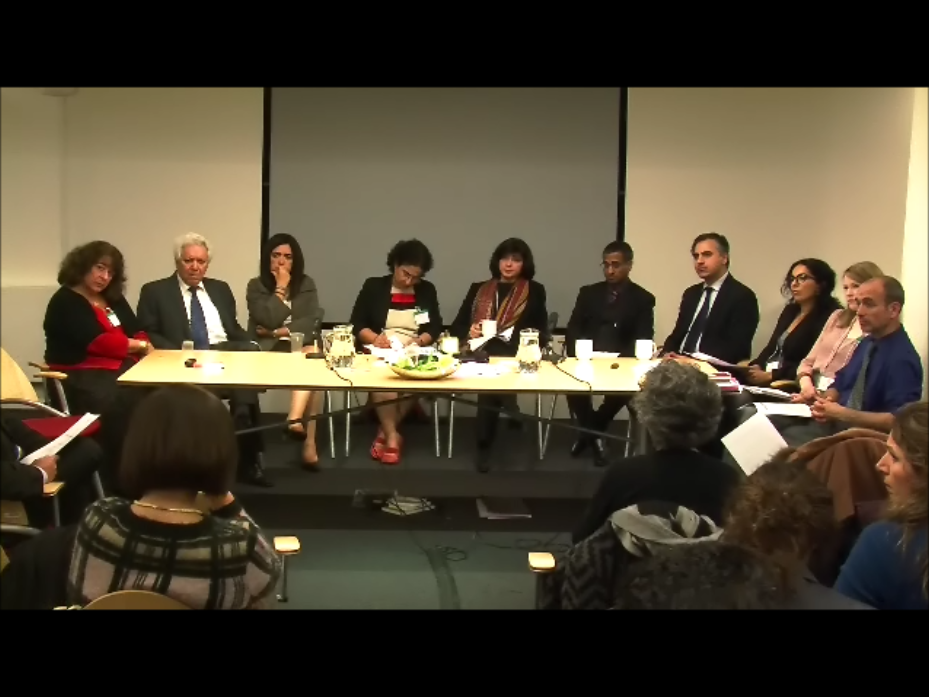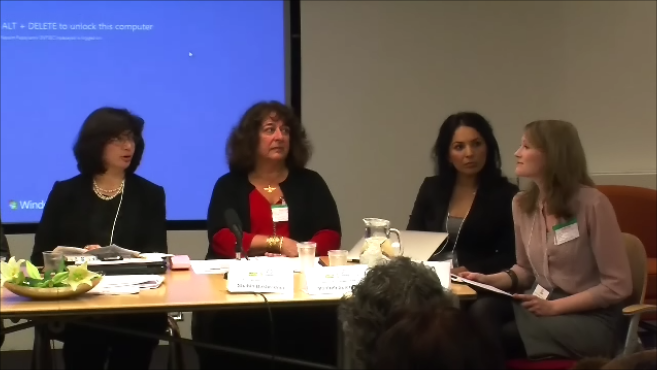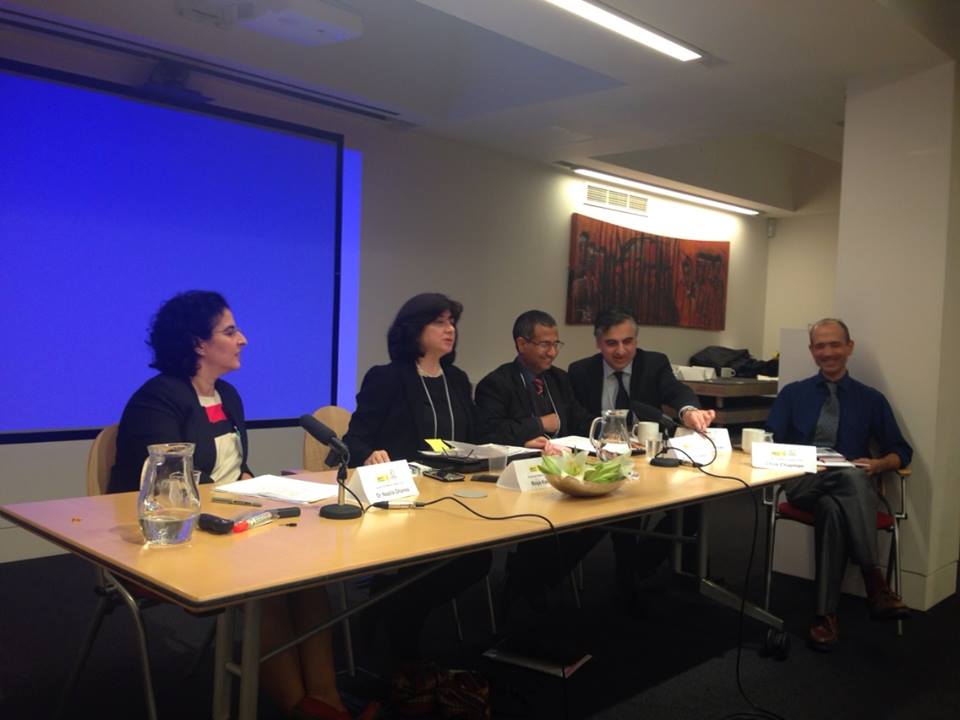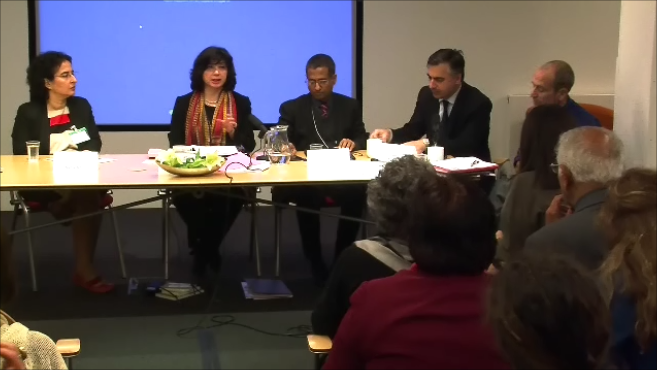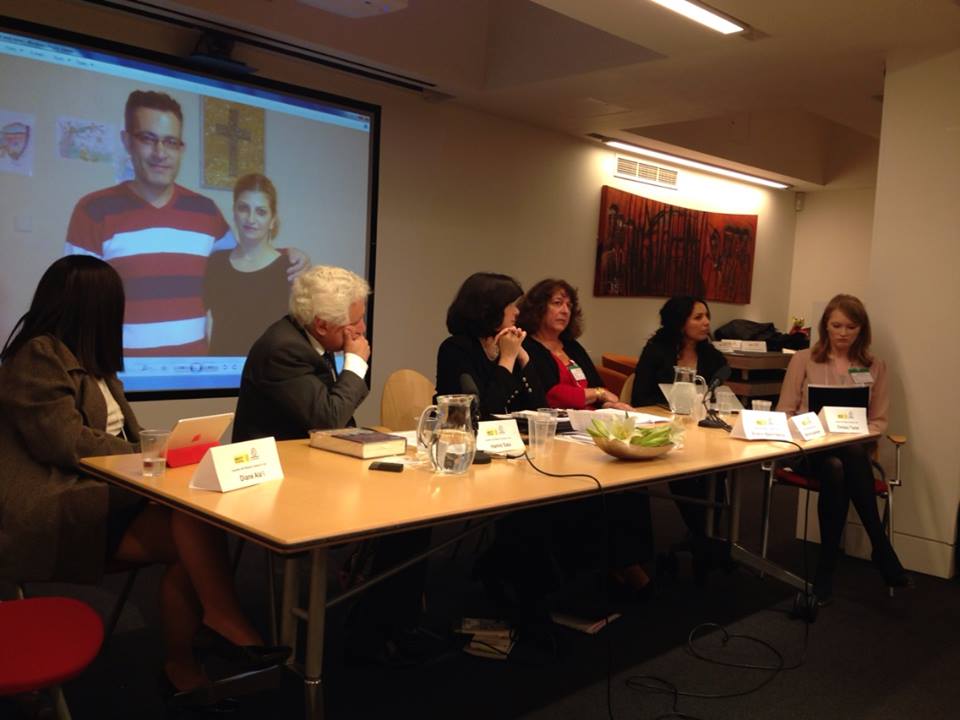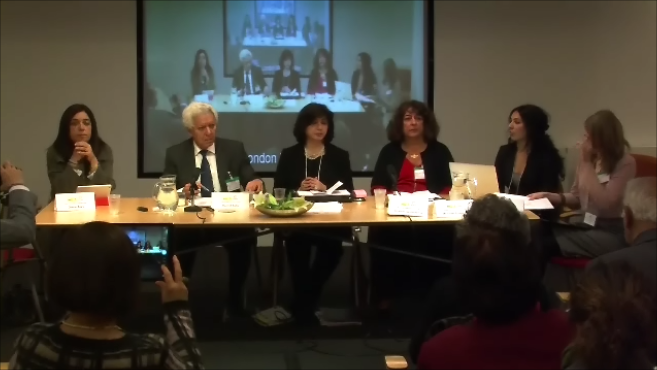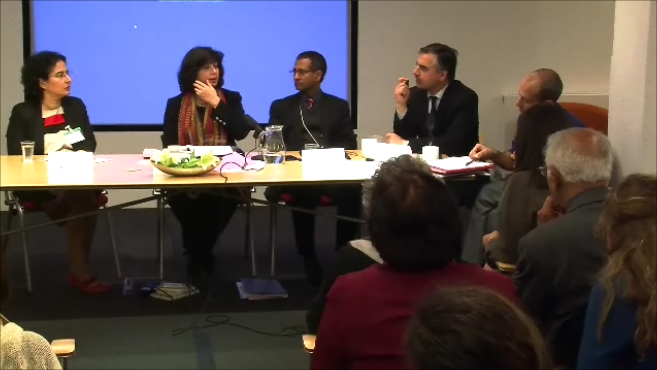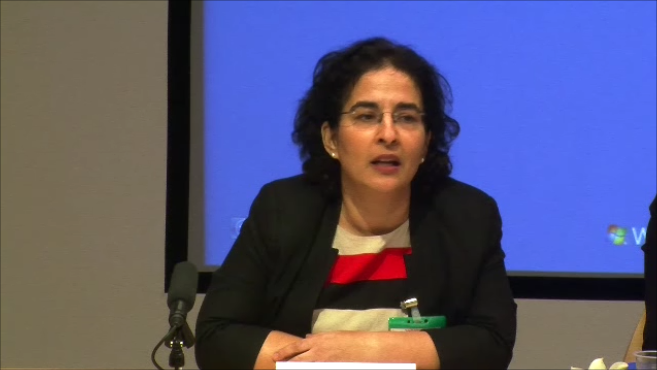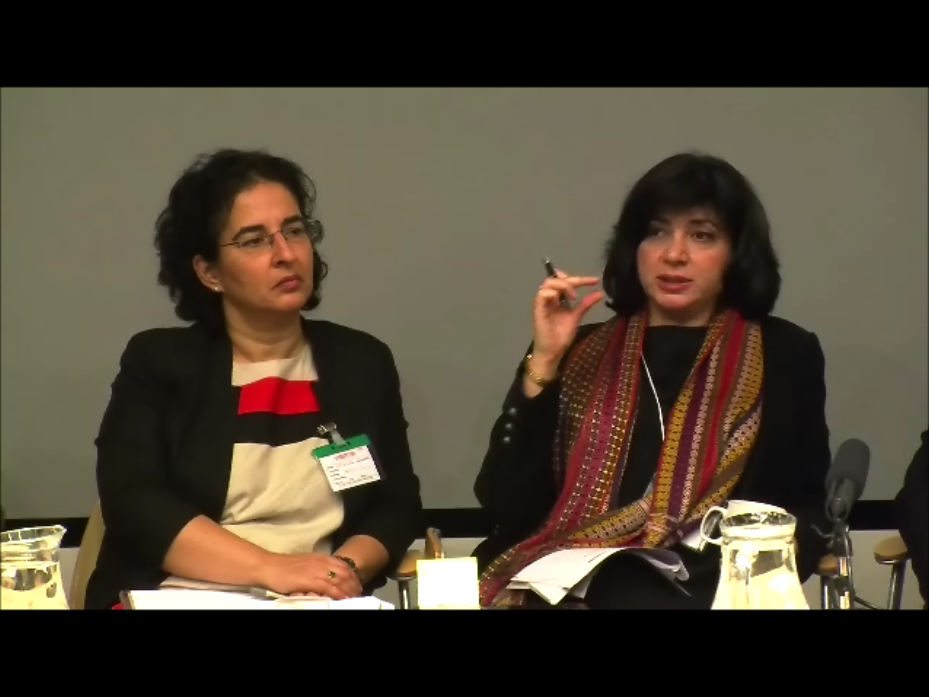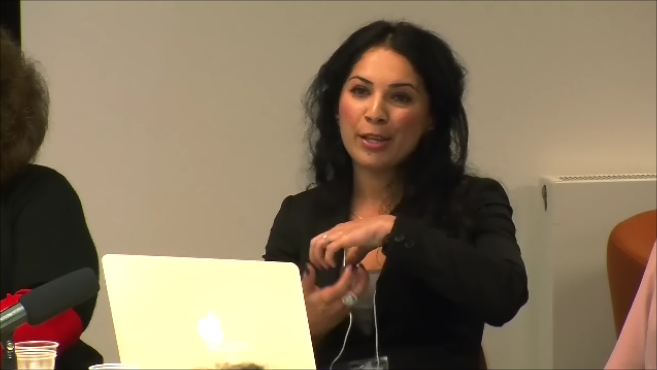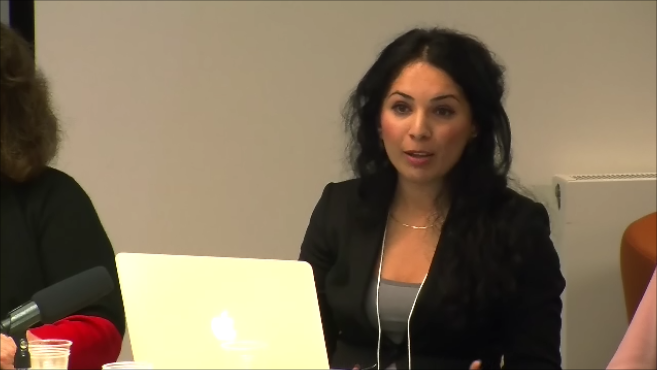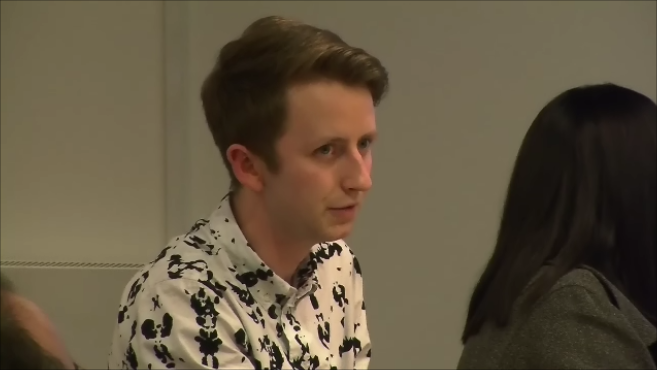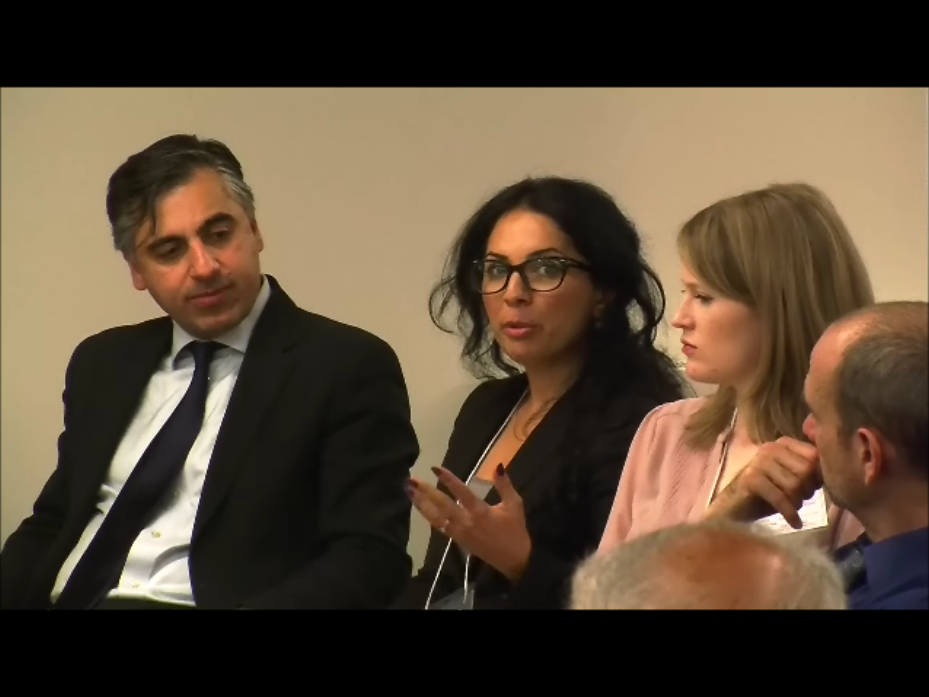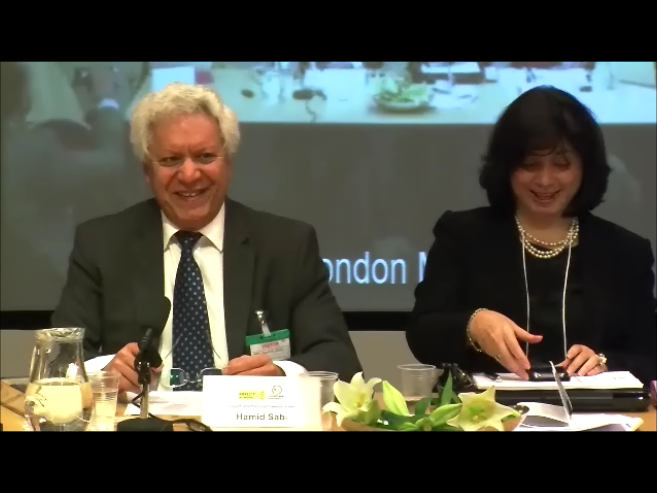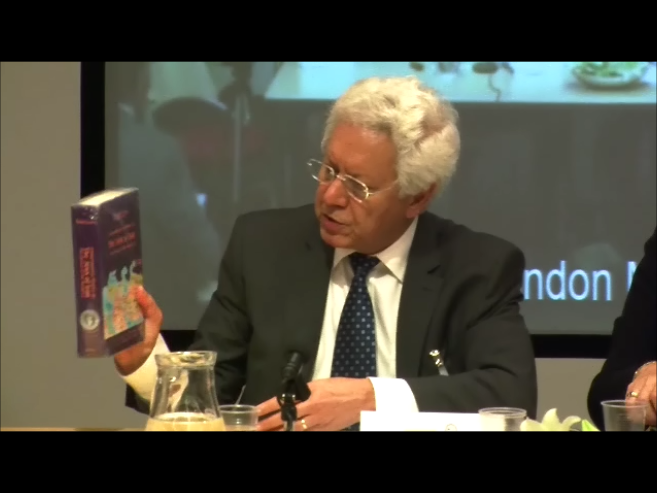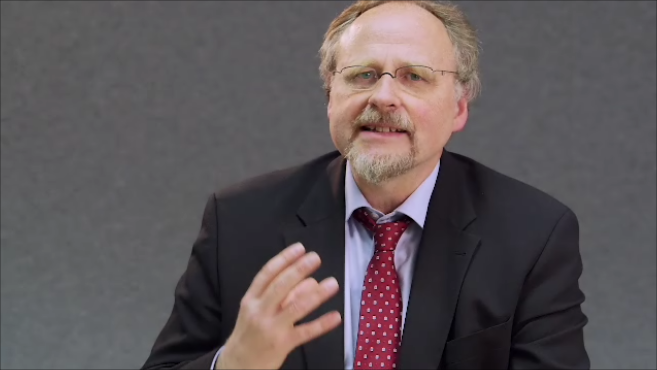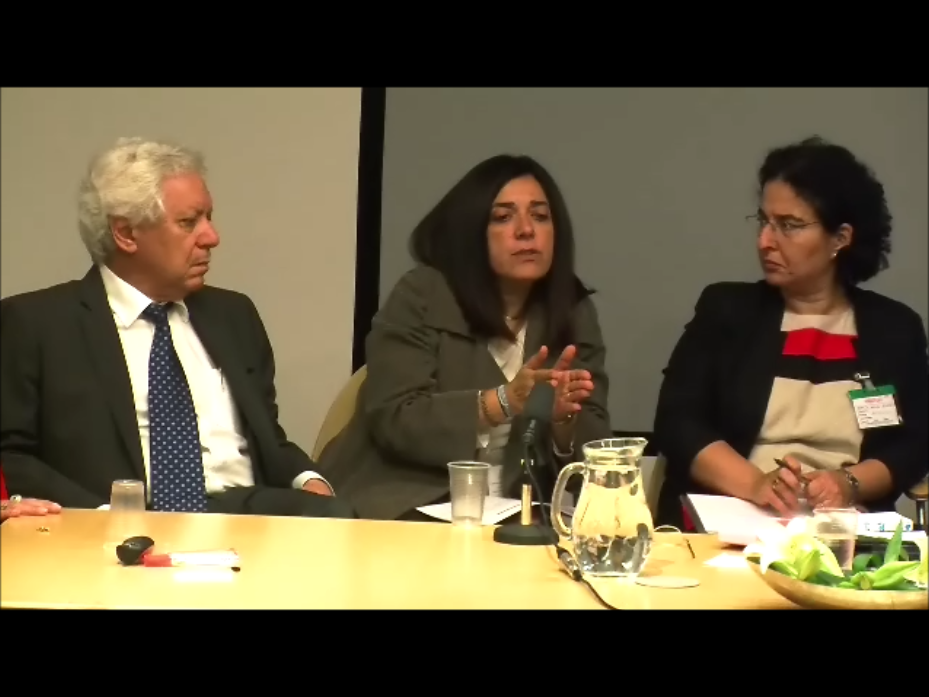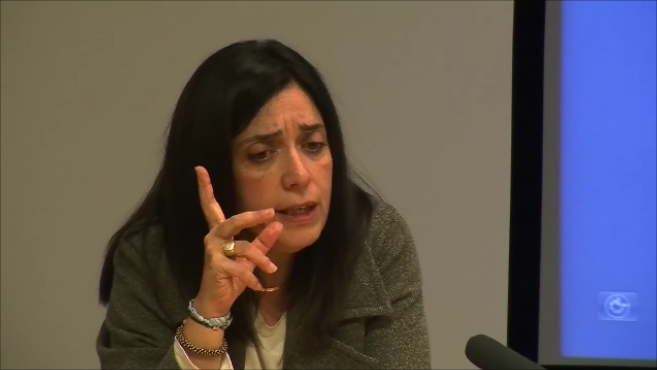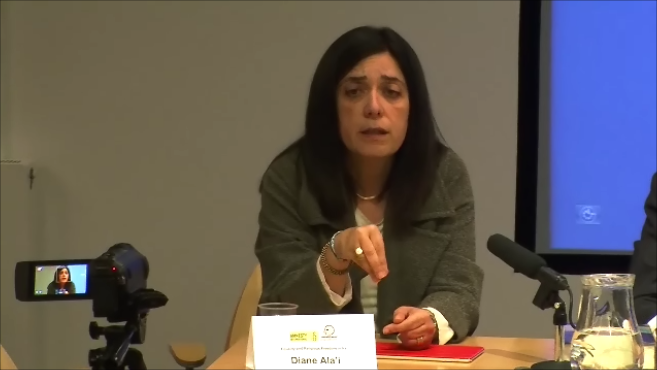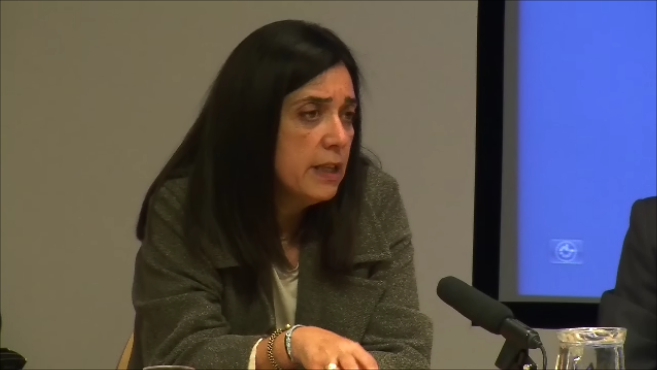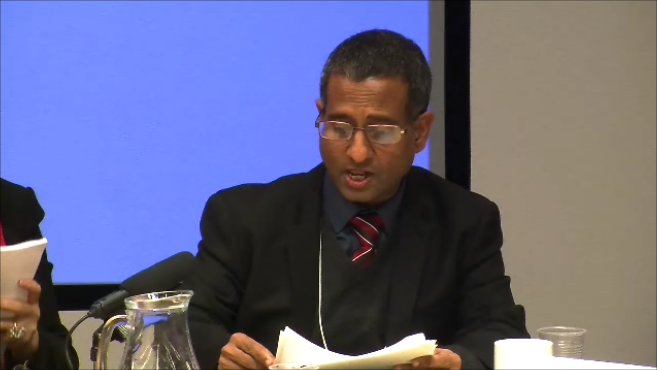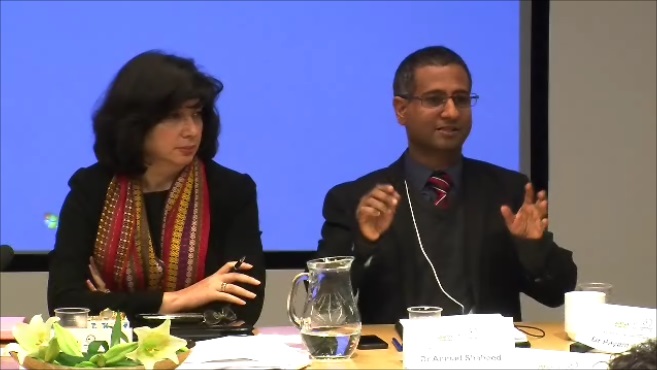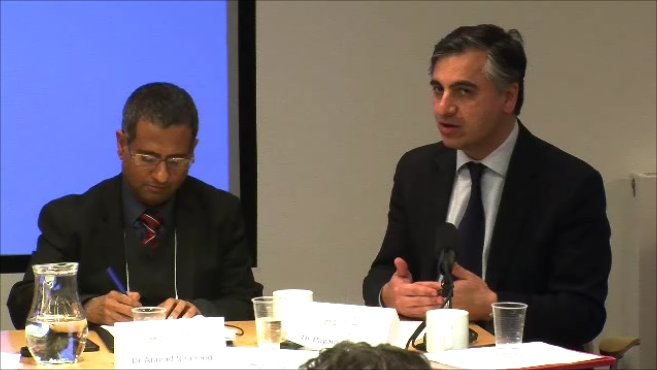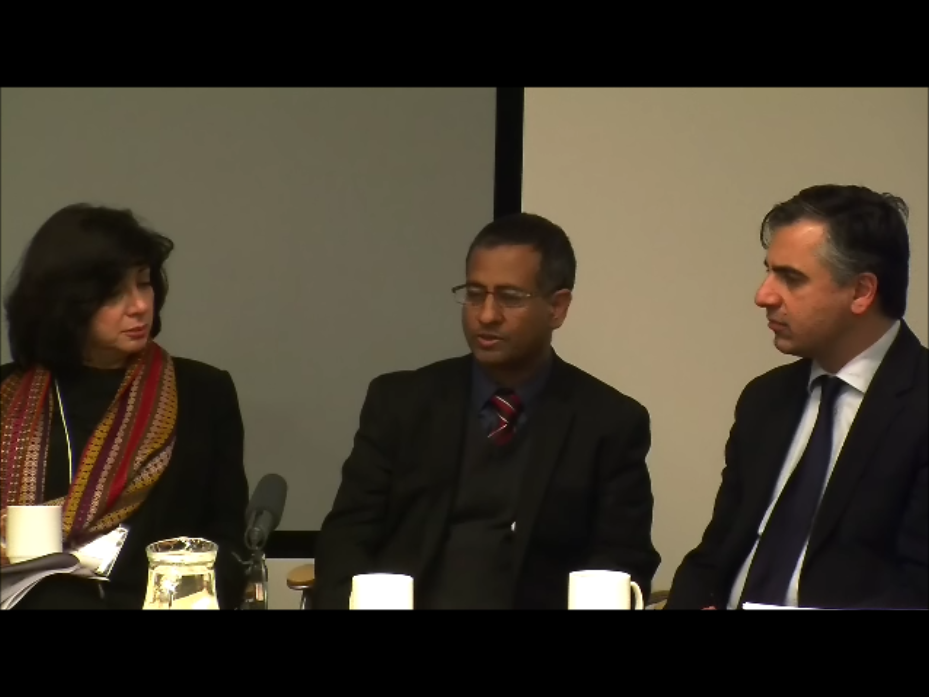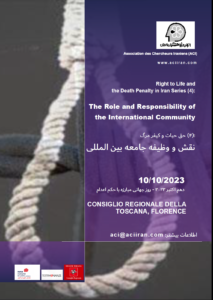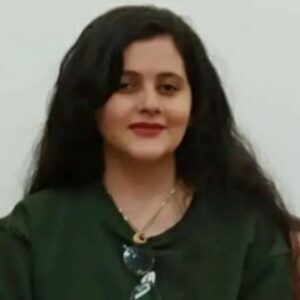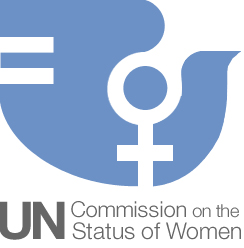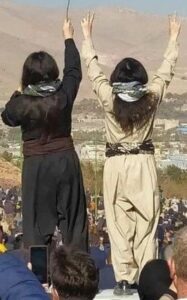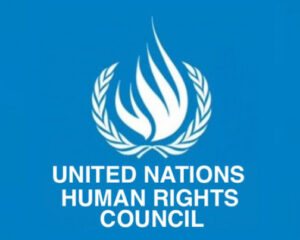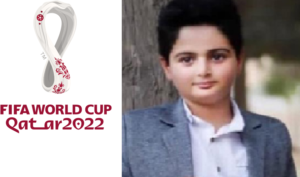Equality and Religious Freedom in Iran
Written by ACI in 21 November 14This important meeting brought leading international experts together to discuss the issue of ‘Equality and Religious Freedom in Iran’. The mandate with which president Rohani took office in August 2013 was change and moderation. He appointed an advisor on minority issues and published a ‘Citizenship Charter’.
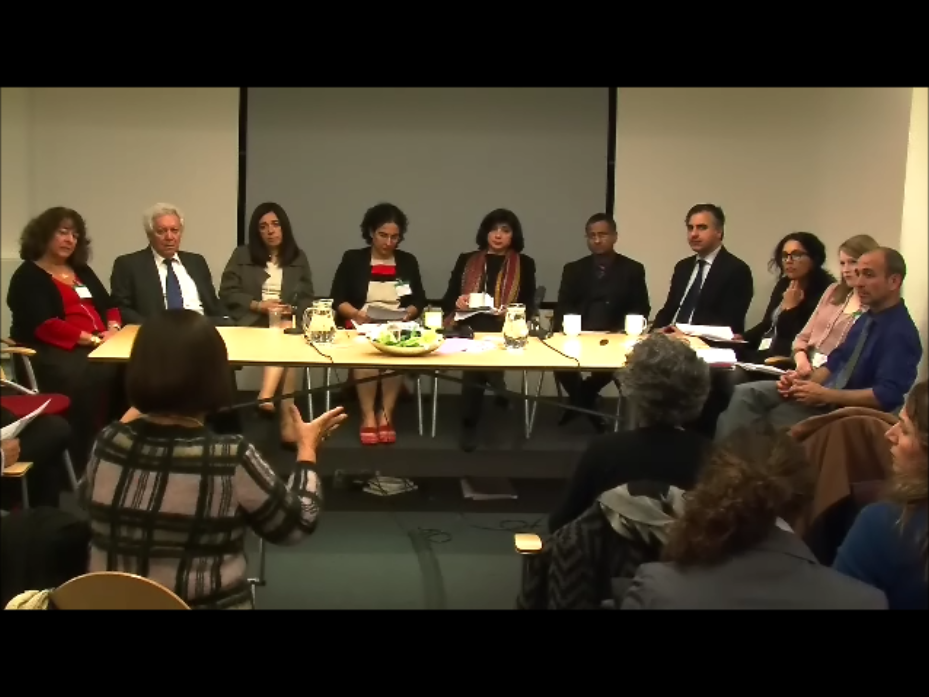
21 November 2014
Amnesty International Secretariat – London, UK
This one day seminar was co-sponsored by Amnesty International

On 21 November 2014 Association des Chercheurs Iraniens (ACI) held a one day seminar co-sponsored by Amnesty International at their International Secretariat in London.
Iran, which is a predominantly made up of Shi’a Muslims, has historically been home to a number of other belief, religious and ethnic minority groups, including Yaresan (Ahl-e Haq), Bahá’ís, Christians and Christian converts, Jews, Sunnis and Sunni converts, Zoroastrians and Zoroastrian converts; as well as Ahwazi Arabs, Azeris, Baluchis, Kurds and Turkmen ethnic groups. In Iran, the question of religion and ethnicity is intertwined for a number of groups. As members of belief and religious minorities have been arrested, arbitrarily detained, denied fair trials, barred from employment, and limited in their cultural and social rights, a growing number have fled the country and claimed asylum on grounds of religious persecution.
This important meeting brought leading international experts together to discuss the issue of ‘Equality and Religious Freedom in Iran’. The mandate with which president Rohani took office in August 2013 was change and moderation. He appointed an advisor on minority issues and published a ‘Citizenship Charter’.
In the first panel, representatives of religious groups presented an up to date picture of life in Iran and provided a snapshot of the situation for Iran’s belief and religious minorities since President Hassan Rohani took office.
Panel two examined international standards and Iran’s national laws.
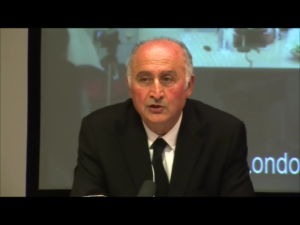 In his opening speech ACI’s president, Dr Hossein Ladjevardi, commented on the specific timing of the conference which came three weeks after Islamic Republic’s submission to the Human Rights Council’s UPR mechanism, a few days after a UN General Assembly resolution condemned the systematic human rights violations in Iran and only three days before the final deadline for the nuclear talks. He stated that in its dealings with the Islamic Republic the international community must not undermine the fight for human rights in Iran and that the consequences of Islamic Republic’s policies and actions could drag the region into a dangerous sectarian Sunni-Shi’a war.
In his opening speech ACI’s president, Dr Hossein Ladjevardi, commented on the specific timing of the conference which came three weeks after Islamic Republic’s submission to the Human Rights Council’s UPR mechanism, a few days after a UN General Assembly resolution condemned the systematic human rights violations in Iran and only three days before the final deadline for the nuclear talks. He stated that in its dealings with the Islamic Republic the international community must not undermine the fight for human rights in Iran and that the consequences of Islamic Republic’s policies and actions could drag the region into a dangerous sectarian Sunni-Shi’a war.
Panel 1
https://www.youtube.com/watch?v=M706ZPhPS-4&list=UU5Mso957sptv135nS5HAiwA
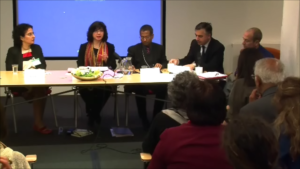
Snapshot of Iran: Equality and religious freedom – Situation for Religious groups in Iran since President Hassan Rouhani took office in August 2013
- Hamid Sabi – Lawyer – Chairman of the Iranian Jewish Centre
- Shahin Bekhradnia – Joint Honorary Secretary of the World Zoroastrian Organisation (WZO)
- Chrissy Taylor – Research and Advocacy – Elam Ministries
- Monireh Sulemani – International Representative – Balochistan Peoples Party
- Diane Ala’i – the Baha’i International Community’s representative to the United Nations in Geneva
- Presentation: Small Media: Heretics: Iran’s Religious Minorities
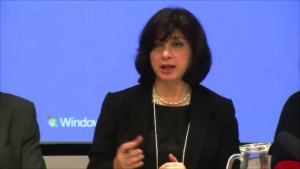 Roya Kashefi, head of ACI’s human rights committee and the seminar’s chairperson, gave a brief report on the findings of extensive research carried out among Iran’s belief and religious groups in and out of Iran in 2014 to be published in 2015.
Roya Kashefi, head of ACI’s human rights committee and the seminar’s chairperson, gave a brief report on the findings of extensive research carried out among Iran’s belief and religious groups in and out of Iran in 2014 to be published in 2015.
The speakers in the first panel counted the many discriminatory laws that limit equitable treatment and their equal rights as citizens of Iran.
The Constitution of the Islamic Republic of Iran recognises Zoroastrians, Jews and Christians and consequently accords limited rights to their communities as long as they remain loyal to the ruling ideology and ‘refrain from engaging in conspiracy or activity against Islam and the Islamic Republic of Iran’. This vague and ambiguous wording of the last sentence of article 14 of the Constitution has repeatedly been used to persecute members of belief and religious groups and dissent offences appear on charge sheets.
First to speak were members of the ‘recognised’ religious groups in Iran followed by a report on the situation of the Sunni Moslems, Yaresan and the Gonabadi Dervishes.
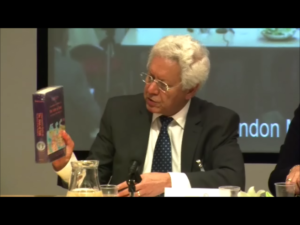 Hamid Sabi stated that in the last thirty five years Jewish education suffered considerably due to the restrictions that were imposed for having an overseer appointed by Government. Some Jewish schools were closed down, but after years of campaigning arrangements were made that some Jewish schools could continue to operate as long as the headmaster was appointed and approved by Government. This was a shared concern by all speakers.
Hamid Sabi stated that in the last thirty five years Jewish education suffered considerably due to the restrictions that were imposed for having an overseer appointed by Government. Some Jewish schools were closed down, but after years of campaigning arrangements were made that some Jewish schools could continue to operate as long as the headmaster was appointed and approved by Government. This was a shared concern by all speakers.
Shahin Bekhradnia commented on the dwindling numbers of Zoroastrians in Iran but that however small the number of born Zoroastrians may be, it is open knowledge that the numbers of new Zoroastrians is growing rapidly throughout the provinces and cities of Iran. She commented on the difficult situation for new Zoroastrians and the fact that the existing holy sites were off limits to them with the Zoroastrian officials warned against any contacts with them.
Shahin Bekhradnia went on to state that many official Zoroastrian holy places had become tourist attractions, ‘some Zoroastrians complain privately that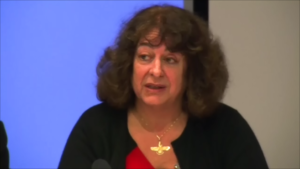 they no longer have any control over any of their own holy places since gawpers and gazers come to our shrines as if to watch animals in a zoo’.
they no longer have any control over any of their own holy places since gawpers and gazers come to our shrines as if to watch animals in a zoo’.
She went on to state that even the most qualified university graduates cannot easily find jobs as it is well known that within the public sector, preference is almost always given to Muslim applicants even with lower qualifications. She added that some sectors are no longer open to Zoroastrians such as the armed forces or the governmental ministries.
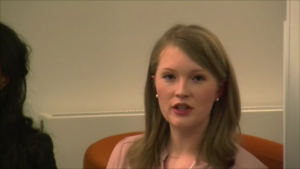 As Chrissy Taylor recounted, in the case of the Christians with Moslem background, the situation had in fact deteriorated with 59 known arrests and detentions during the Rohani presidency so far.
As Chrissy Taylor recounted, in the case of the Christians with Moslem background, the situation had in fact deteriorated with 59 known arrests and detentions during the Rohani presidency so far.
She described the present situation by recounting the account of a pastor and his family in Iran whose 12 year old son was interrogated and beaten to reveal the ‘hiding places’ of the Bible in their home on 20 July 2014. The pastor who was from a Moslem background ran a house church from his home for a small congregation and their experience was typical of many in recent years.
 Monireh Sulemani reported on the situation of Sunni women throughout Iran while concentrating on the Balochistan region and discussed crucial elements that can adversely impact equality for women. She explained the added problems for Sunni women belonging to national minority groups particularly from a security perspective and the heavy military presence in the region. She pointed out the recent growth of religious fundamentalism in the region which she explained as a spillover from Afghanistan and Pakistan. She further highlighted the excessive and disproportionate use of the death penalty in the Balochistan region which means women who are already economically vulnerable lose their breadwinners and young male members of their family.
Monireh Sulemani reported on the situation of Sunni women throughout Iran while concentrating on the Balochistan region and discussed crucial elements that can adversely impact equality for women. She explained the added problems for Sunni women belonging to national minority groups particularly from a security perspective and the heavy military presence in the region. She pointed out the recent growth of religious fundamentalism in the region which she explained as a spillover from Afghanistan and Pakistan. She further highlighted the excessive and disproportionate use of the death penalty in the Balochistan region which means women who are already economically vulnerable lose their breadwinners and young male members of their family.
Diane Ala’i, the last speaker of the first panel, listed the many different ways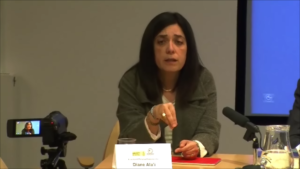 the equal rights of the Baha’is are violated and how the situation had deteriorated in the last year. She remarked that hearing from other religious groups in Iran it is very clear that the Iranian government does not accept anyone who thinks differently to themselves and that the patterns of persecution are very similar although the extent may vary from one recognised group to a non recognised group.
the equal rights of the Baha’is are violated and how the situation had deteriorated in the last year. She remarked that hearing from other religious groups in Iran it is very clear that the Iranian government does not accept anyone who thinks differently to themselves and that the patterns of persecution are very similar although the extent may vary from one recognised group to a non recognised group.
Diane Ala’i explained that the way that the Bahá’ís are treated is regulated through secret circulars that are still applied today. The most important of these circulars was issued in 1991 by the Supreme Council of the Cultural Revolution and it lists how to treat the Bahá’ís.
All speakers commented on the extent of legal discrimination in their communities and the fact that the situation had not improved under president Rohani.
Another common point in the presentations in the first panel was land and property confiscation or forced compulsory sale.
The first panel concluded with a presentation by Small Media about access to free information by members of belief and religious groups from within Iran in view of strict restrictions and internet censorship.
Panel 2
http://youtu.be/53vLC9CQKaE?list=UU5Mso957sptv135nS5HAiwA
International Standards: equality, religious freedom and gender issues; education system and official religion; right to conversion; right to recognition
Dr Heiner Bielefeldt, United Nations Special Rapporteur on freedom of religion or belief – Video Message:
- Dr Nazila Ghanea – Associate Professor in International Human Rights Law – University of Oxford
- Chris Chapman – Amnesty International
- Dr Payam Akhavan – Associate professor of international law; Visiting Fellow – Kellogg College – Oxford University
- Dr Ahmad Shaheed – United Nations Special Rapporteur on the Situation of Human Rights in the Islamic Republic of Iran
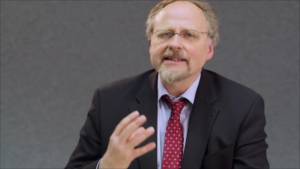 Dr Heiner Bielefeldt the UN Special Rapporteur on freedom of religion or belief opened the second panel by reminding us that recognition of the inherent dignity of all members of the human family is the starting point of understanding human rights as stated in the first sentence of the first international human rights document, the Universal Declaration of Human Rights. ‘Recognition’ is a term very often used in the field of freedom of religion or belief and sometimes governments seem to assume that only religious communities which have received a particular recognition status are allowed to operate in a country and that the term recognition is the source of much confusion. Dr Bielefeldt stressed that prior to any administrative or other procedures for ‘recognition’, recognition has a much higher and more principled status. Therefore, ‘recognition’ is not the product of any negotiated or administrative process but an inherent right.
Dr Heiner Bielefeldt the UN Special Rapporteur on freedom of religion or belief opened the second panel by reminding us that recognition of the inherent dignity of all members of the human family is the starting point of understanding human rights as stated in the first sentence of the first international human rights document, the Universal Declaration of Human Rights. ‘Recognition’ is a term very often used in the field of freedom of religion or belief and sometimes governments seem to assume that only religious communities which have received a particular recognition status are allowed to operate in a country and that the term recognition is the source of much confusion. Dr Bielefeldt stressed that prior to any administrative or other procedures for ‘recognition’, recognition has a much higher and more principled status. Therefore, ‘recognition’ is not the product of any negotiated or administrative process but an inherent right.
Dr Bielefeldt also stressed that without the possibility of changing one’s belief, freedom of religion or belief would be impossible and that the right to conversion is an indispensable part of the freedom of religion and belief.
Dr Nazila Ghanea followed on by explaining the term ‘religious minority’ and what freedom of religion or belief means according to international human rights law. Dr Ghanea stated that the definition and scope of freedom of religion or belief has been consistent in international human rights law since 1948. Freedom of religion or belief has always included the freedom to have, to adopt, or, to change one’s religion or belief and it includes the freedom to manifest that religion or belief in private or in public according to known non-discriminatory laws. She stressed that there should be no coercion in having, adopting or changing one’s religion or belief.
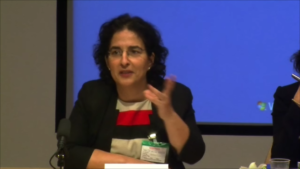 Dr Ghanea went on to explain that according to international human rights law minorities are a non dominant population or not in power. The term minority is not necessarily numerical although that may be one of the factors in identifying the group. If a numerical minority group is in power it is no longer recognised as a minority group according to international human rights law. Minority groups have certain characteristics that include linguistic, ethnic and religion or belief characteristics that they wish to safeguard and maintain. Minorities’ rights are protected in international law and article of 27 of the International Covenant on Civil and Political Rights elaborates on these rights.
Dr Ghanea went on to explain that according to international human rights law minorities are a non dominant population or not in power. The term minority is not necessarily numerical although that may be one of the factors in identifying the group. If a numerical minority group is in power it is no longer recognised as a minority group according to international human rights law. Minority groups have certain characteristics that include linguistic, ethnic and religion or belief characteristics that they wish to safeguard and maintain. Minorities’ rights are protected in international law and article of 27 of the International Covenant on Civil and Political Rights elaborates on these rights.
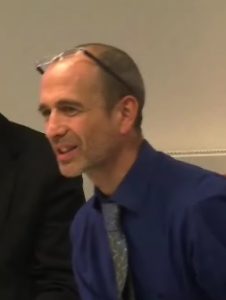 On the issue of minority rights and minorities, Chris Chapman stressed that, ‘we should not characterise minorities as necessarily being belligerent and that they would take up arms when their rights are violated. In fact more often than not the State is the first aggressor. The point being that when a situation of tension is created this can easily lead to minority rights violations.’ He added that as far as development was concerned specific causes of poverty and weak human development among minorities are often linked to the violation of their rights. Chris Chapman finished by stressing that it should not be forgotten that respect for minority rights is also a moral imperative based on commitments made by governments to international human rights standards.
On the issue of minority rights and minorities, Chris Chapman stressed that, ‘we should not characterise minorities as necessarily being belligerent and that they would take up arms when their rights are violated. In fact more often than not the State is the first aggressor. The point being that when a situation of tension is created this can easily lead to minority rights violations.’ He added that as far as development was concerned specific causes of poverty and weak human development among minorities are often linked to the violation of their rights. Chris Chapman finished by stressing that it should not be forgotten that respect for minority rights is also a moral imperative based on commitments made by governments to international human rights standards.
Dr Payam Akhavan addressed what he called ‘the Inverted interpretation of international human rights law’ by the Islamic Republic of Iran where freedom of religion and belief and not incitement to hatred is prohibited.
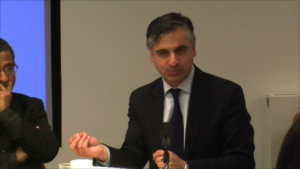 Dr Akhavan made the very clear and strong connection between freedom of expression and freedom of religion and belief. He stated that as is defined in the International Covenant on Civil and Political Rights, on the one hand, States are obligated to respect freedom of expression which is integrally connected to freedom of religion and belief, conscience and worship while, on the other hand, the permissible exception and indeed the obligation to limit such expression is where it amounts to incitement of discrimination and hatred.
Dr Akhavan made the very clear and strong connection between freedom of expression and freedom of religion and belief. He stated that as is defined in the International Covenant on Civil and Political Rights, on the one hand, States are obligated to respect freedom of expression which is integrally connected to freedom of religion and belief, conscience and worship while, on the other hand, the permissible exception and indeed the obligation to limit such expression is where it amounts to incitement of discrimination and hatred.
In Iran, the ruling ideology has done the exact opposite where an integral part of the propaganda of the Islamic republic has been the demonisation of minorities. He reflected on the need for a national context where international standards could be translated into a national discourse which in turn can be embraced by the general public.
The last speaker of the day was Dr Ahmad Shaheed. As a starting point to his presentation, Dr Shaheed explained the Islamic Republic of Iran’s position on freedom of religion and belief in Iran as was presented to the international community at the UN General Assembly three days earlier on 18 November 2014.
The Islamic Republic maintains that freedom of religion is respected according to article 13 of the Constitution; Article 23 of the Constitution forbids the investigation of individuals’ beliefs and that recognised religious groups in Iran have guaranteed seats in the Islamic Consultative Assembly and that every year funds are made available to these religious groups for the celebration of their religious holidays.
In the course of his talk, Dr Shaheed examined these assertions and pointed out the contradictions in law and in practice. He concurred with the views expressed by previous speakers that in fact the Shi’a community that did not abide by the strict rules also suffered due to the governing ideology and suggested that even the recent acid throwing attacks on women in Isfahan could be interpreted as an application of ‘promoting virtue and forbidding evil’ ideology which had recently been ratified in Parliament.
Dr Shaheed also commented on what he called the double jeopardy of being an ethnic and religious minority at the same time. He stated that based on the credible reports he regularly receives in Balochistan the use of the death penalty is disproportionate and several times more than the rest of the country and that being a Kurd means harsher punishment for the same offence.
Dr Shaheed expressed serious concern for the situation of Sunni Moslems in Iran.
Panel 3
Conclusion and Recommendations
Discrimination and persecution of members of theistic, non theistic or atheistic religions or beliefs occur systematically and Iranians, in general, do not enjoy equal rights or receive equitable treatment.
Credible verifiable reports from Iran, testimonies and eye witness accounts refute the claims made by the Islamic Republic delegation in the October 2014 Universal Periodic Review at the Human Rights Council that no one is in prison because of their faith, religion or belief.
They refute the claim that those arrested enjoy full protection of the law and have access to legal representations. They refute the claims that even recognised religious minorities are protected and can practice their faith in safety and security. Accounts of property confiscations, harassments of priests and religious leaders, need to register congregation lists, threats against evangelical Christians or any kind of proselytising activity refute these claims.
Lack of job security, prohibition for certain groups for certain jobs because they are ‘unclean’ effects the financial situation of religious groups adversely.
Ideological education system refutes any claim of openness and that tolerance and respect for others is being taught at school.
It is not enough to state that anyone living in Iran enjoys citizenship rights. Citizenship rights cannot be divided to different classes of recognised and unrecognised citizens. Citizenship rights mean equality and equitable treatment for all without any privilege for a certain group because of their gender or religion.
Freedom of thought and expression is inseparable from freedom of religion and belief and the right to conversion is an indispensable part of the freedom of religion and belief.
Despite his campaign promises, President Rohani has failed to practically demonstrate his will to bring about any meaningful change in law, in practice and in the State’s attitudes and approaches to minority issues.
His ‘Citizenship Charter’ is based on the Constitution and prevalent Islamic belief of the ruling hierarchy and fails to go any deeper into the protection of the equal rights of all Iranians. As a multiethnic, multi religious, multilingual nation Iranians do not enjoy equal rights and are discriminated against in law and in practice based on their religion or belief. The increased numbers of arrests and detention of the non recognised religious groups in the last 16 months indicate a worsening of the situation and increased sensitivity.
Brief Biographies:
Dr Payam Akhavan – Visiting Fellow – Kellogg College Oxford University; Associate Professor of International Law at McGill University in Montreal, Canada. First Legal Advisor to the Prosecutor’s Office of the International Criminal Tribunal for Yugoslavia at The Hague, and also served with the UN in Bosnia, Croatia, Cambodia, East Timor, Guatemala, and Rwanda. He has also appeared as counsel and advocate in leading cases before the International Court of Justice, the International Criminal Court, the Permanent Court of Arbitration, the European Court of Human Rights, and the Supreme Courts of Canada and the United States. Chairman of the Global Conference on the Prevention of Genocide He is also Co-Founder of the Iran Human Rights Documentation Centre and served as Prosecutor of the Iran People’s Tribunal.
Diane Ala’i – the Baha’i International Community’s representative to the United Nations in Geneva; Chair of the NGO Sub-Committee on Freedom of Religion and Belief (Geneva), Vice-Chair of the Committee on Racism and Racial Discrimination. She participates actively in the Special Committee of International NGOs on Human Rights. She has also collaborated with the UN as a consultant for the Office of the High Commissioner for Human Rights Technical Cooperation in Armenia in November 1997, training national NGOs in human rights machinery.
Shahin Bekhradnia – Joint Honorary Secretary of the World Zoroastrian Organisation (WZO) and Religious Affairs Spokesperson. .One of her main duties within this role involves supporting Zoroastrian refugees from Iran which has brought her into contact with a wide range of people in crisis. She has been an expert witness in a number of asylum cases. She also organises the annual WZO all day seminar. In Iran she has set up a skills academy in Yazd teaching young Zoroastrians to earn their own independent livelihoods through their newly learnt practical skills. This centre has been in action for 15 years now and is endorsed by the local community as serving a very useful function. She has also helped establish a Senior Citizens Day Centre there to serve the older members of the community who are left behind as the younger generation leave for a better life outside Iran
Chris Chapman – Adviser/Researcher on Indigenous Rights at Amnesty International, where he supports research and advocacy on land rights, free prior and informed consent, and violence against Indigenous women, among other issues. From 2000 to 2013 he was at Minority Rights Group International, most recently as Head of Conflict Prevention. Chris has published a number of articles/reports on indigenous and minority rights, conflict prevention and transitional justice. From 1995-2000 Chris worked in conflict resolution, human rights monitoring and journalism in Haiti and Guatemala. He has a masters degree in Armed Conflict and Crisis Management from the Open University of Catalonia.
Dr Nazila Ghanea – Associate Professor of International Human Rights Law at the University of Oxford and is a member of the OSCE Panel of Experts on freedom of religion or belief. She serves on the Board of Governors of the Universal Rights Group and is an Associate Director of Oxford Human Rights Hub. She has authored, co-authored and edited a number of academic and UN publications including: Religion or Belief, Discrimination and Equality: Britain in Global Contexts and Human Rights, the UN and the Bahá’ís in Iran. She is co-author, along with Heiner Bielefeldt and Michael Wiener, of a forthcoming Oxford University Press monograph and has just completed a research grant (along with Essex Fellow Başak Çalı) looking at the domestic effects of UN treaty ratification on the member states of the GCC
Hamid Sabi – Iranian lawyer with an international practice. He is the Chairman of the Iranian Jewish Centre and a member of the Executive Committee of Iran Tribunal
Dr Ahmad Shaheed – The Human Rights Council appointed Dr. Ahmed Shaheed to the office of Special Rapporteur on the situation of human rights in the Islamic Republic of Iran in June 2011, and he began his mandate on 1 August. Dr. Shaheed is the fourth special rapporteur to Iran, after Andres Aguilar (1984-1986), Reynaldo Galindo Pohl (1984-1986), and Maurice Copithorne (1995-2002). Dr. Shaheed has produced six reports presented to the UN General Assembly (September 2011, October 2012 and October 2013) and UN Human Rights Council (March 2012, 2013 and 2014).
Monireh Sulemani – The international representative of the Balochistan Peoples Party. Ms. Sulemani has represented the Baloch community at various international forums, including the United Nations Permanent Forum on Indigenous and the United Nations Forum on Minority Issues.
Chrissy Taylor – Chrissy works for Elam Ministries, a charity that exists to strengthen the church in Iran and the wider region. Coordinating Elam’s advocacy efforts, Chrissy works to document and raise awareness about the persecution that many endure in Iran. After completing her history degree at Oxford, Chrissy became an intern with Christian Solidarity Worldwide (CSW), an advocacy group that campaigns for religious freedom for all, in many countries around the world. Placed on the Africa and Middle East team, Iran was one of Chrissy’s countries of focus. Following her internship, she remained as a researcher with CSW before joining Elam in 2012.
